Billie Holiday sings again, Olivia Laing tends to her garden, and Biran Klaas takes a chance: our reviewers discuss their favourite reads of 2024.
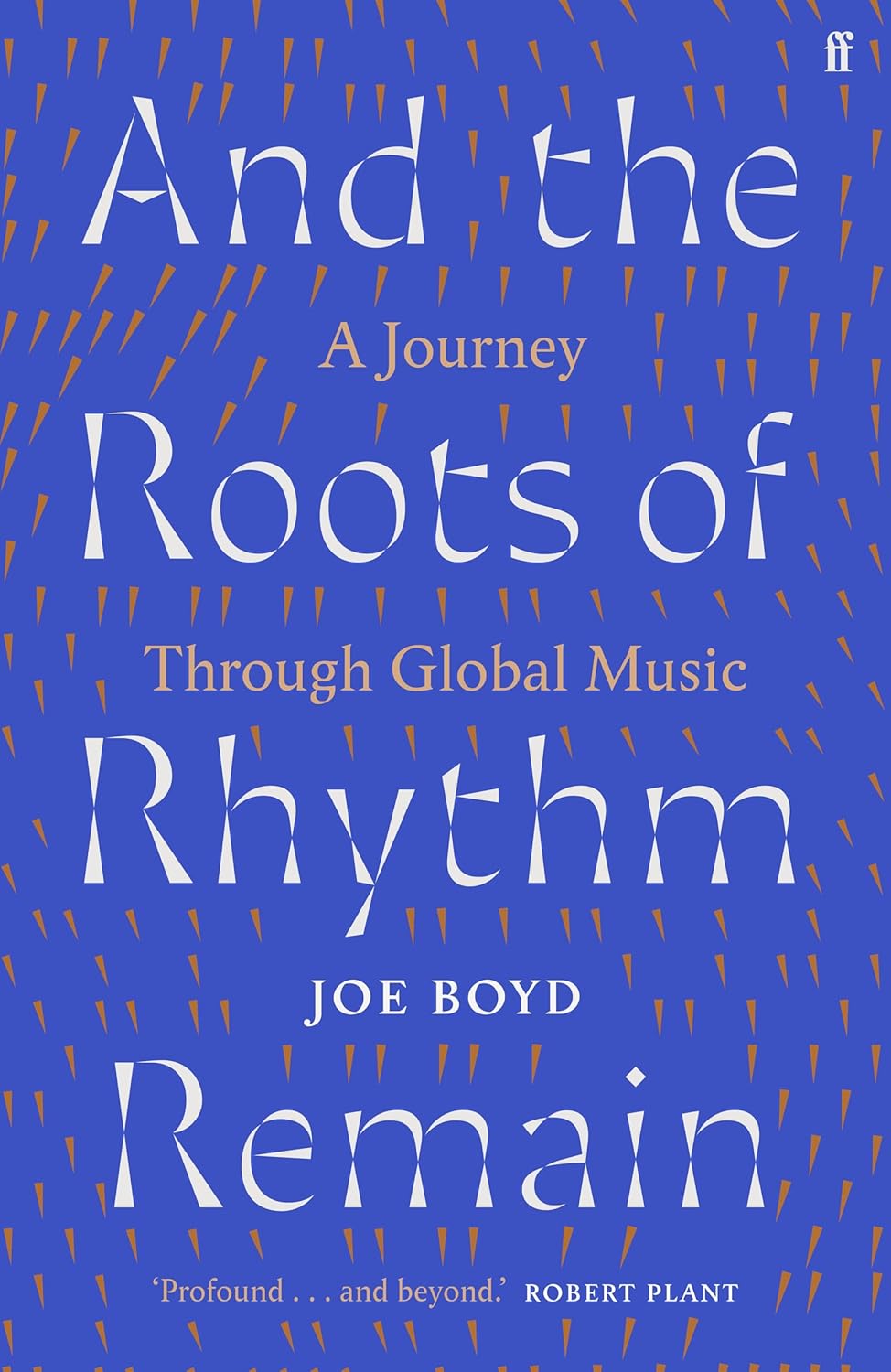 Joe Boyd’s And the Roots of Rhythm Remain (Faber & Faber, £30) delivers handsomely on the promise of its subtitle: a journey through global music. The veteran producer and promoter has been soaking up the varied music of many cultures since long before that problematic term “world music” was invented. I was hooked on his border-hopping conspectus of much of the most interesting music of the last century from the opening long chapter on South Africa. The others offer equally vivid delvings into the origins and influence of music made in Africa, the Caribbean, India, South America, and Eastern Europe. Each is fascinating in its detail, and Boyd seems to have been present near the beginning of an astonishing proportion of the musics he writes about. The reader learns new things about music familiar – Graceland and the Buena Vista Social Club – and unfamiliar – vastly more. I haven’t finished the book yet, as each chapter seems to prompt a month’s worth of listening. Started late in 2024, Boyd’s remarkable 850pp opus looks like giving pleasure for much of the year to come. Jon Turney
Joe Boyd’s And the Roots of Rhythm Remain (Faber & Faber, £30) delivers handsomely on the promise of its subtitle: a journey through global music. The veteran producer and promoter has been soaking up the varied music of many cultures since long before that problematic term “world music” was invented. I was hooked on his border-hopping conspectus of much of the most interesting music of the last century from the opening long chapter on South Africa. The others offer equally vivid delvings into the origins and influence of music made in Africa, the Caribbean, India, South America, and Eastern Europe. Each is fascinating in its detail, and Boyd seems to have been present near the beginning of an astonishing proportion of the musics he writes about. The reader learns new things about music familiar – Graceland and the Buena Vista Social Club – and unfamiliar – vastly more. I haven’t finished the book yet, as each chapter seems to prompt a month’s worth of listening. Started late in 2024, Boyd’s remarkable 850pp opus looks like giving pleasure for much of the year to come. Jon Turney
My favourite of this year’s books that I reviewed was Brian Klaas’s Fluke (John Murray Press, £20), which deals with how everything that happens in the world is contingent on everything else that happens, in a way that ripples out from our own personal circumstances to the wider world and its history. Klaas poses the question: “If you could rewind your life to the very beginning and then press play, would everything turn out the same?” And the answer makes for an entertaining, thoughtful and wide-ranging read. Of new books I didn’t have the good fortune to review, I would unreservedly recommend Michael Palin’s Great-Uncle Harry, in which he tracks down the life of his forefather, killed at the Somme. It is a humble tribute to a humble man, whose individual story speaks so much more powerfully than the statistics of WWI ever could. Palin writes with his usual geniality and patience, and it is a beautiful book. Bernard Hughes
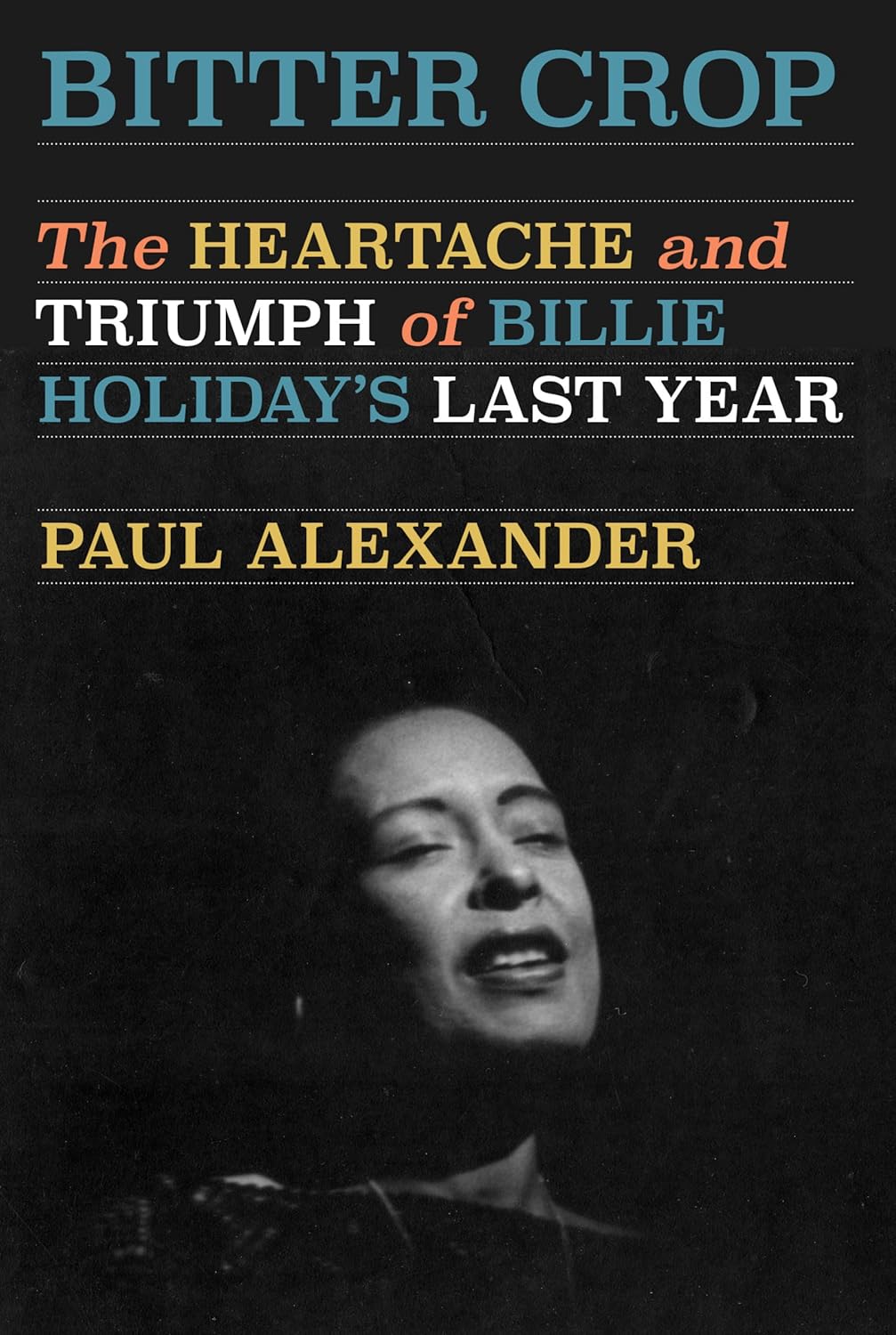 Paul Alexander’s Bitter Crop: the Heartache and Triumph of Billie Holiday’s Last Year (Canongate, £20) should be saluted not only for its innovative chronological technique (which, at its best, suggests a literary analog for jazz musicians’ tendency to depart from and return to a melody or beat), but also for offering a corrective to the cliched and reductive narratives that Billie Holiday has long been subjected to: she was a tragic victim, who died a pitiful junkie. These insulting, racist myths were, Alexander notes, cemented by the wildly inaccurate 70s biopic ‘Lady Sings the Blues’ which in turn was in many ways significantly less offensive and moronic than ‘The United States vs. Billie Holiday’, the despicable 2021 film that suggested Holiday had a passionate affair with one of the Federal narc parasites who ruined her life and put her in an early grave. Alexander also refutes the (related) myth that says Holiday’s artistry declined rapidly along with her health, that her best work had been done for Columbia in the mid 1930s, when her youthful voice – lithe, buoyant, and effervescent – had yet to acquire the grain and rough edges that hard living, not to mention alcohol and cigarettes, imposed upon it. The truth is that her later output, the Verve recordings in particular, contain many – not a handful of exceptions, but dozens – of vocal performances that are the artistic equal of, and sometimes surpass, even the best of the Columbia sides. John Carvill
Paul Alexander’s Bitter Crop: the Heartache and Triumph of Billie Holiday’s Last Year (Canongate, £20) should be saluted not only for its innovative chronological technique (which, at its best, suggests a literary analog for jazz musicians’ tendency to depart from and return to a melody or beat), but also for offering a corrective to the cliched and reductive narratives that Billie Holiday has long been subjected to: she was a tragic victim, who died a pitiful junkie. These insulting, racist myths were, Alexander notes, cemented by the wildly inaccurate 70s biopic ‘Lady Sings the Blues’ which in turn was in many ways significantly less offensive and moronic than ‘The United States vs. Billie Holiday’, the despicable 2021 film that suggested Holiday had a passionate affair with one of the Federal narc parasites who ruined her life and put her in an early grave. Alexander also refutes the (related) myth that says Holiday’s artistry declined rapidly along with her health, that her best work had been done for Columbia in the mid 1930s, when her youthful voice – lithe, buoyant, and effervescent – had yet to acquire the grain and rough edges that hard living, not to mention alcohol and cigarettes, imposed upon it. The truth is that her later output, the Verve recordings in particular, contain many – not a handful of exceptions, but dozens – of vocal performances that are the artistic equal of, and sometimes surpass, even the best of the Columbia sides. John Carvill
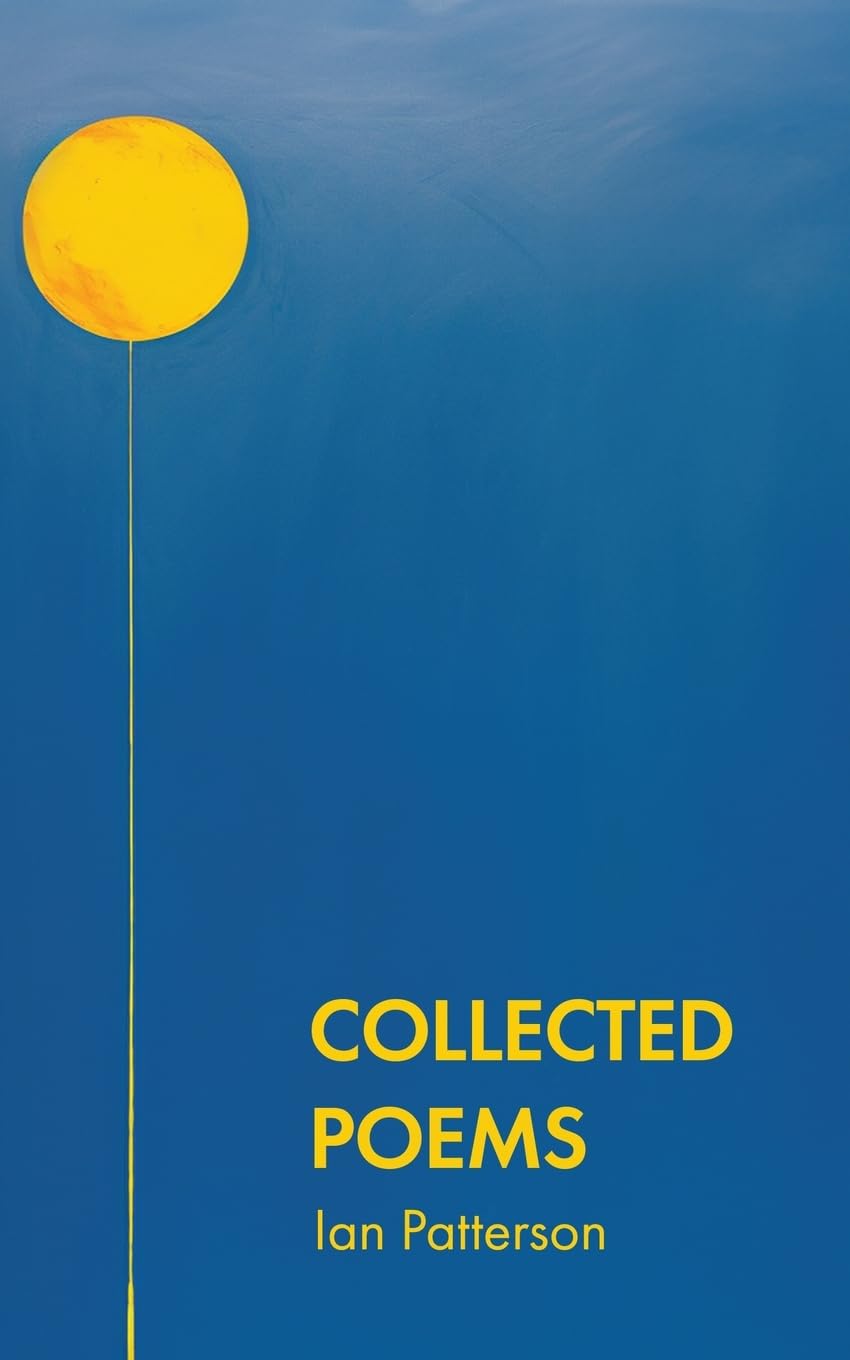 There’s been a lot of brilliant poetry this year, and JH Prynne’s Poems 2016-2024, published by Bloodaxe, is an inexpressibly important – and utterly mad – addition to the English canon. But there was also published, this time by the fantastic Broken Sleep Books, Ian Patterson’s Collected Poems (Broken Sleep Books, £17.99). Patterson is well-known to the British avant-garde as a poet of elegantly surreal lyricism: his is a corpus that tacks from the utmost personal to the vitally political with alarming grace. His verse is therefore difficult (because people are difficult) and persistently inflected by his academic career at Queen’s College, Cambridge; but it can also transcend the confines of the academy: Patterson’s poem, "The Plenty of Nothing", won the 2017 Forward Prize for Best Single Poem. An elegy for his wife, the writer Jenny Diski, its language presses hard into the impossibilities of our smallest acts of contact and builds, with almost-unpunctuated force, a radical poetics of absence. It is one of the finest elegies in English that I’ve encountered. Jack Barron
There’s been a lot of brilliant poetry this year, and JH Prynne’s Poems 2016-2024, published by Bloodaxe, is an inexpressibly important – and utterly mad – addition to the English canon. But there was also published, this time by the fantastic Broken Sleep Books, Ian Patterson’s Collected Poems (Broken Sleep Books, £17.99). Patterson is well-known to the British avant-garde as a poet of elegantly surreal lyricism: his is a corpus that tacks from the utmost personal to the vitally political with alarming grace. His verse is therefore difficult (because people are difficult) and persistently inflected by his academic career at Queen’s College, Cambridge; but it can also transcend the confines of the academy: Patterson’s poem, "The Plenty of Nothing", won the 2017 Forward Prize for Best Single Poem. An elegy for his wife, the writer Jenny Diski, its language presses hard into the impossibilities of our smallest acts of contact and builds, with almost-unpunctuated force, a radical poetics of absence. It is one of the finest elegies in English that I’ve encountered. Jack Barron
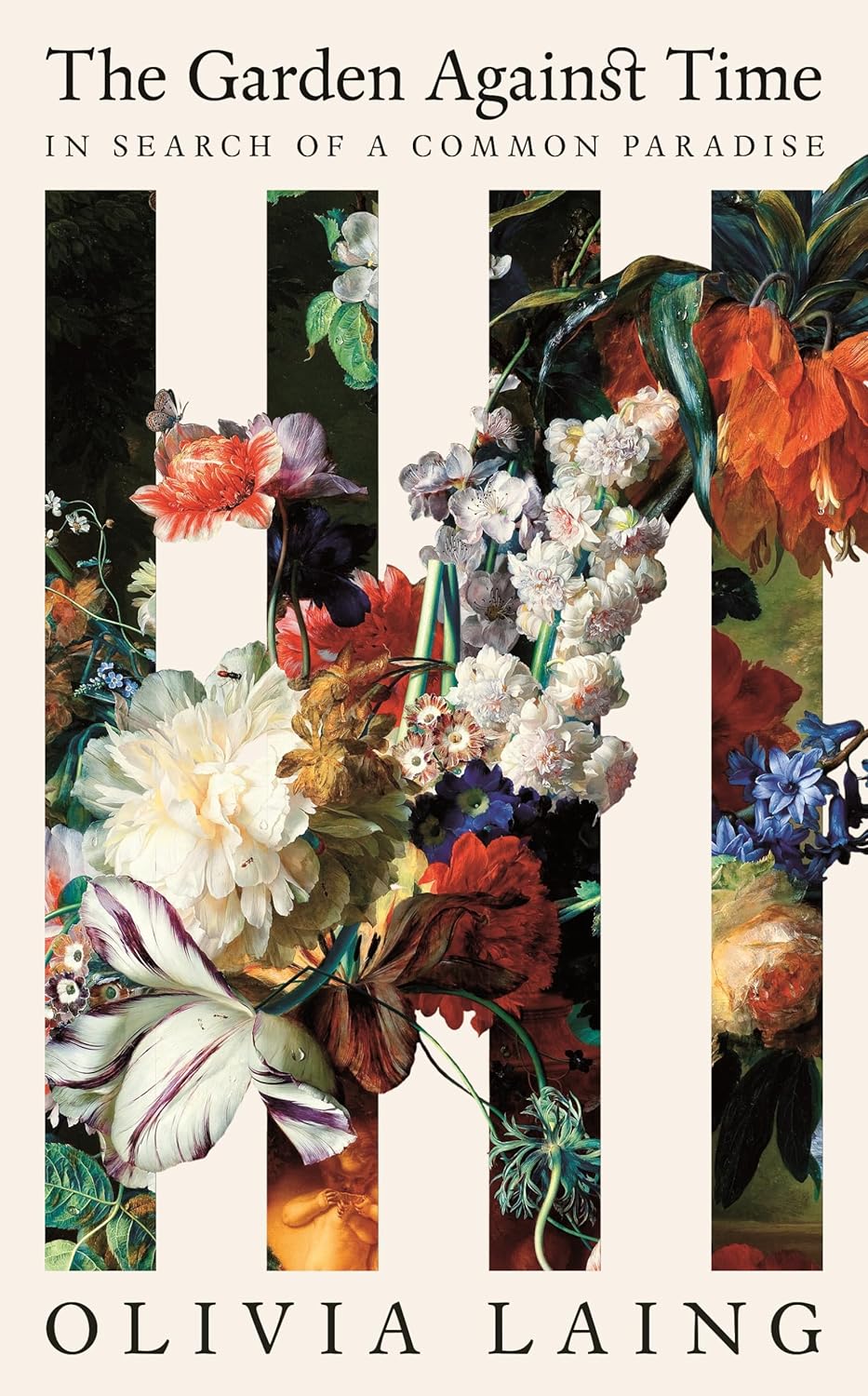 In a good crop yield year of publications, many books felt a little overhyped and ultimately overrated (Oisín McKenna’s Evenings and Weekends, Sally Rooney’s Intermezzo to name just two). Not so with Olivia Laing’s The Garden Against Time: In Search of a Common Paradise (Picador, £10). Published at the start of May, just in time for the world to start venturing outside again, it centred around her own garden, but left its bounds to travel out into the English countryside and over the world in its discussion of what outdoor spaces can mean to us. We join Laing having married in later life, and subsequently coming into a Sussex garden with her husband, filled with history but in need of care and attention. Laing teases out the story of John Clare, desperately linked to the fields around his home, and Derek Jarman’s sanctuary of Dungeness, but she doesn’t shy away from the more problematic history around slavery and their owner’s gardens, ultimately creating a text that is as engaging and dynamic as its prose is beautiful and poetic. India Lewis
In a good crop yield year of publications, many books felt a little overhyped and ultimately overrated (Oisín McKenna’s Evenings and Weekends, Sally Rooney’s Intermezzo to name just two). Not so with Olivia Laing’s The Garden Against Time: In Search of a Common Paradise (Picador, £10). Published at the start of May, just in time for the world to start venturing outside again, it centred around her own garden, but left its bounds to travel out into the English countryside and over the world in its discussion of what outdoor spaces can mean to us. We join Laing having married in later life, and subsequently coming into a Sussex garden with her husband, filled with history but in need of care and attention. Laing teases out the story of John Clare, desperately linked to the fields around his home, and Derek Jarman’s sanctuary of Dungeness, but she doesn’t shy away from the more problematic history around slavery and their owner’s gardens, ultimately creating a text that is as engaging and dynamic as its prose is beautiful and poetic. India Lewis

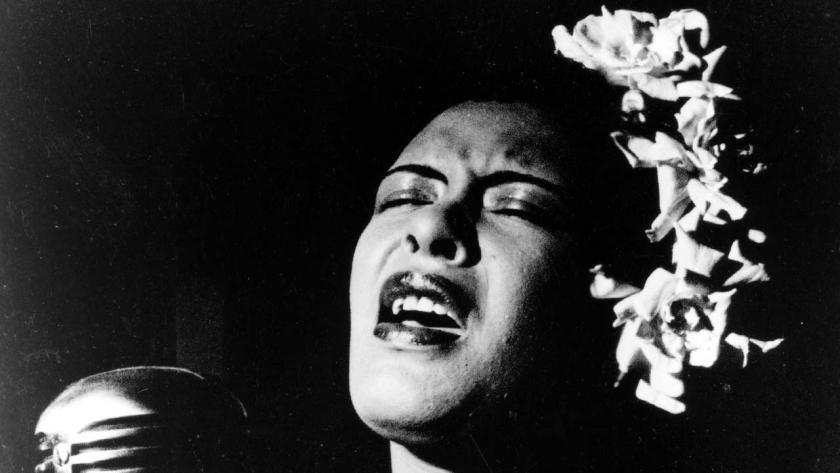













Add comment